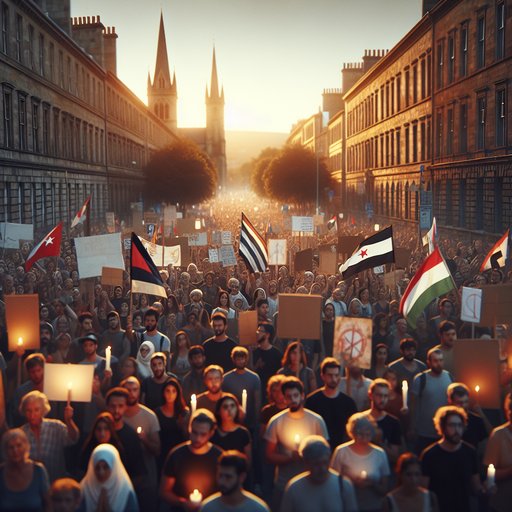
Tens of thousands of pro-Palestinian demonstrators gathered in London this week, expressing both hope and skepticism about the newly implemented ceasefire in Gaza. The massive turnout highlighted the continuing public engagement with the humanitarian situation, even as the conflict enters a potential turning point [1].
The London demonstration marked one of the largest gatherings since the announcement of the ceasefire, with protest leaders describing a complex mixture of "relief" and "trepidation" among participants. Many attendees expressed concern about the durability of the agreement while emphasizing the need for continued attention to humanitarian issues [1].
The impact of the conflict and subsequent protests has extended to sporting events, as demonstrated in Norway where police were forced to use pepper spray to disperse protesters outside a Norway versus Israel football match. The incident highlighted the global reach of the demonstrations and the tensions surrounding international sporting events involving Israeli teams [2].
As Palestinians begin returning to their homes following the IDF's withdrawal from parts of Gaza, the situation on the ground remains complex. The ceasefire has allowed for initial assessments of the impact on civilian areas, though concerns persist about long-term stability and reconstruction efforts [3].
University campuses have become another focal point of tension, with freedom of speech watchdogs warning institutions about potential sanctions related to protest activities. Arif Ahmed, a prominent voice in academic oversight, has emphasized the need to balance freedom of expression with protecting students from harassment and discrimination [4].
























